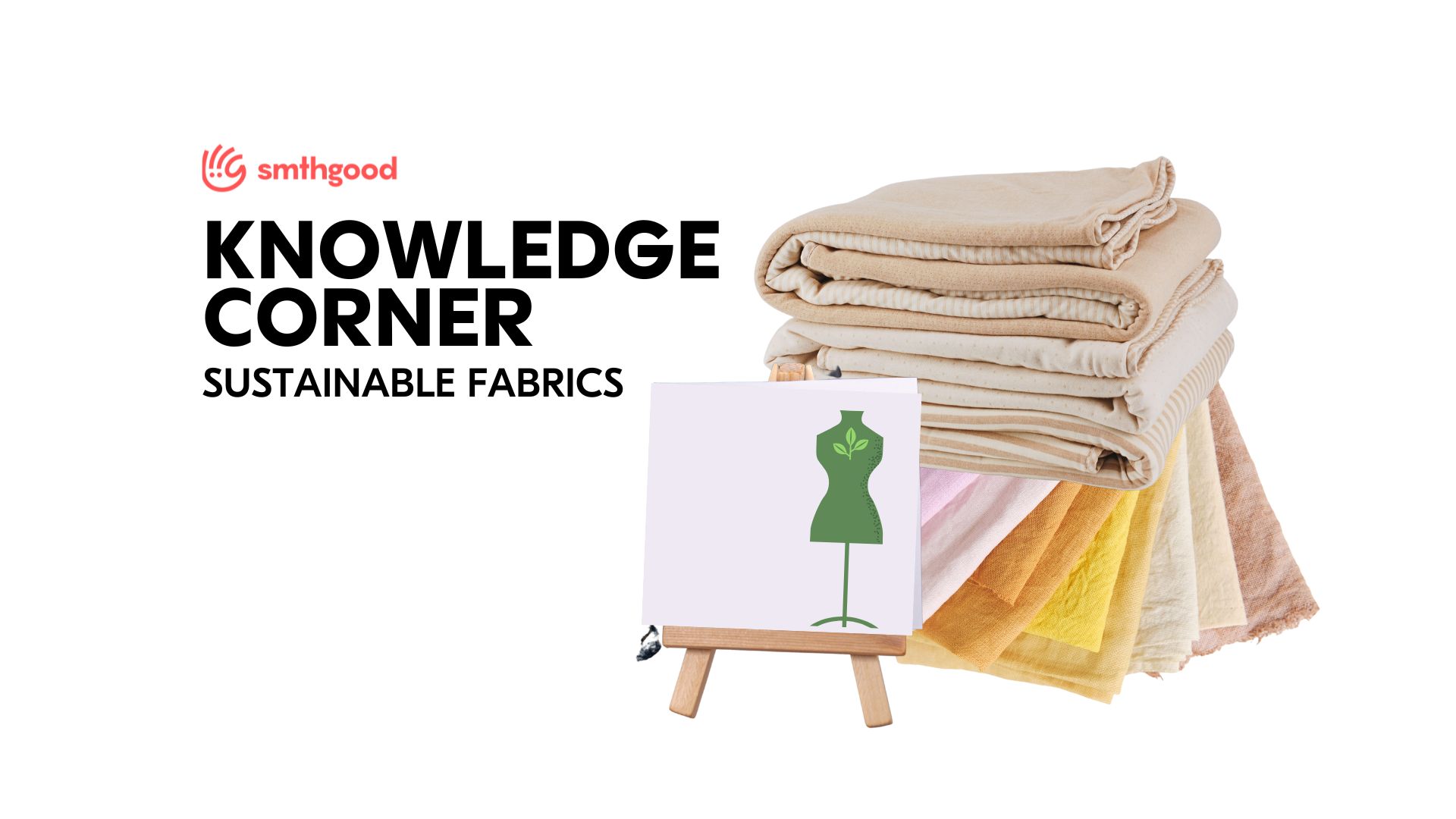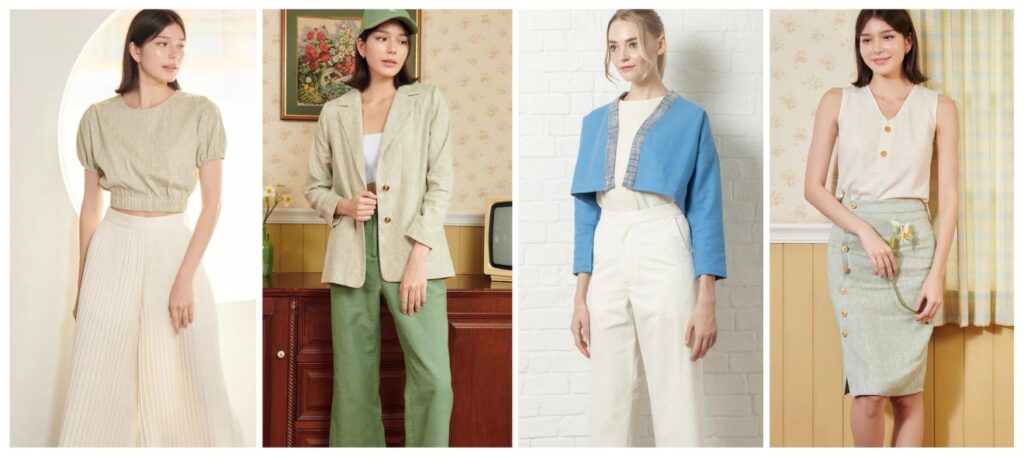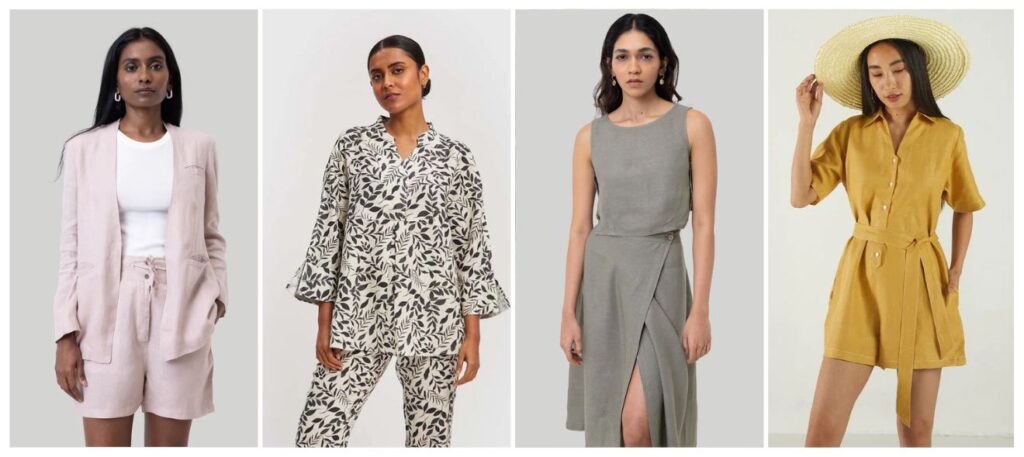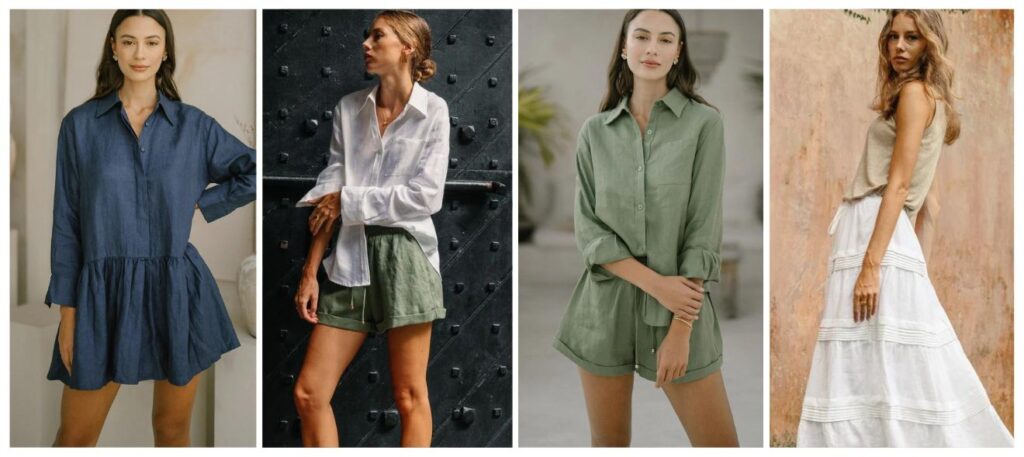What Are Sustainable Fabrics, Pros & Cons?

Sustainable fabrics are textiles that are produced with minimal negative impact on the environment and often promote ethical and socially responsible practices. Some common types of sustainable fabrics include:
Organic Cotton: Grown without harmful chemicals or GMOs, protecting soil and water.
Hemp: A fast-growing plant that yields strong and durable fibers for clothing and accessories.
Lyocell: Made from sustainably sourced wood pulp, employs a closed-loop production process.
Bamboo: A rapidly renewable resource, offers soft and biodegradable fibers.
Recycled Polyester: Diverts waste from landfills, reducing the need for new petroleum-based fibers.
Linen: Derived from flax plants which requires fewer pesticides and water, and it is biodegradable with a naturally textured feel.
Peace Silk (Ahimsa Silk): Unlike conventional silk production, allows silkworms to complete their life cycle, cruelty-free.
Wool: Ethical and sustainable wool comes from responsibly managed sheep farms where the welfare of the animals is prioritized, and eco-friendly practices are implemented.
Econyl: A regenerated nylon fabric made from discarded fishing nets, industrial plastic, and fabric scraps, contributing to marine conservation efforts.
Piñatex: A plant-based leather alternative made from pineapple leaf fibers, offering a sustainable and cruelty-free option for accessories and apparel.
Main Use in the Sustainable Fashion Industry
Sustainable textiles play a pivotal role in the development of eco-friendly and ethical fashion. Embracing these eco-friendly fabrics in clothing and accessories not only contributes to a greener planet but also supports a more responsible and mindful approach to fashion.
As awareness of sustainability grows, so does the demand for these textiles, driving the fashion industry towards a more sustainable and promising future. Let’s delve into the world of sustainable textiles, exploring their main uses, advantages, and a few potential disadvantages.
Advantages of Sustainable Fabrics
- Reduced Environmental Impact: Sustainable textiles are made from renewable resources and have a significantly lower environmental impact compared to conventional fabrics. They consume fewer resources like water and energy during production, leading to a smaller carbon footprint.
- Eco-Friendly Production Processes: The manufacturing of sustainable fabrics typically involves environmentally conscious methods and techniques. This includes the use of non-toxic dyes and chemicals, promoting water conservation, and reducing waste generation.
- Supporting Ethical Practices: Sustainable textiles are often associated with ethical sourcing and fair labor practices. Choosing these fabrics supports workers’ rights and ensures a more equitable and responsible fashion industry.
- Biodegradability and Recycling: Some sustainable textiles, like organic cotton and hemp, are biodegradable, meaning they can naturally break down without harming the environment. Additionally, fabrics made from recycled materials contribute to the circular economy by reducing waste and conserving resources.
Disadvantages of Sustainable Fabrics
- Higher Cost: Sustainable textiles may have a higher price point compared to conventional fabrics, primarily due to the additional effort and resources required for ethical and eco-friendly production.
- Limited Availability and Variety: While sustainable textiles are gaining popularity, they may still be less readily available and come in a more limited range of designs and colors compared to traditional fabrics.
Check out these examples for products made of sustainable fabrics – all available on the Smthgood App.
Taktai

Click HERE to find out more items and order.
Taktai is an earth-loving fashion wear that brings out the essence of the blissfulness of living with nature in its natural products. The pieces are made from eco-friendly materials and crafted with care to bring you fashion that’s both beautiful and ethical.
Reistor

Click HERE to find out more items and order. Reistor is a fashion-forward, thoughtful + conscious clothing brand from India, inspiring change through innovative + ethical practices.
Reistor believes that their drive to make a difference will help them navigate their journey to be ethical and impactful. Reistor represents minimalistic fashion that is timeless and transformative, without diluting our social and environmental responsibility, their focus is on reducing environmental impact (REI) by using sustainable fabrics like hemp, biodegradable trims, and home compostable packaging.
Reistor is a labor of love and learning! The brand intends to inspire people to make ‘ethical consumption of fashion’ a part of everyday life. The planet needs people all to be and do better.
Summery The Label

Click HERE to find out more items and order.
Summery The Label is a slow fashion brand creating breathable, high-quality linen fashion for women. From linen dresses and shirts to maxi skirts and shorts, browse timeless, consciously-made designs inspired by tropical destinations and the freedom of travel. Ethically made from eco-friendly fabrics.
Summery The Label curates small, thoughtful collections designed to withstand the test of time. With a focus on sustainability, their garments are predominantly crafted from linen, a textile renowned for its minimal environmental impact.
____________________________________________________________________
Shop these wonderful sustainable & ethical brands on the Smthgood App.
The home of conscious fashion that is paired with a unique & gamified Lookbook Styling Tool.
Now available on the Google PlayStore & Apple AppStore.
Download now & earn double cashback coins on your first purchase.
For more articles, visit THE GOODNEWS for the latest fashion intel on conscious fashion!
For more information please visit www.smthgoodco.com
